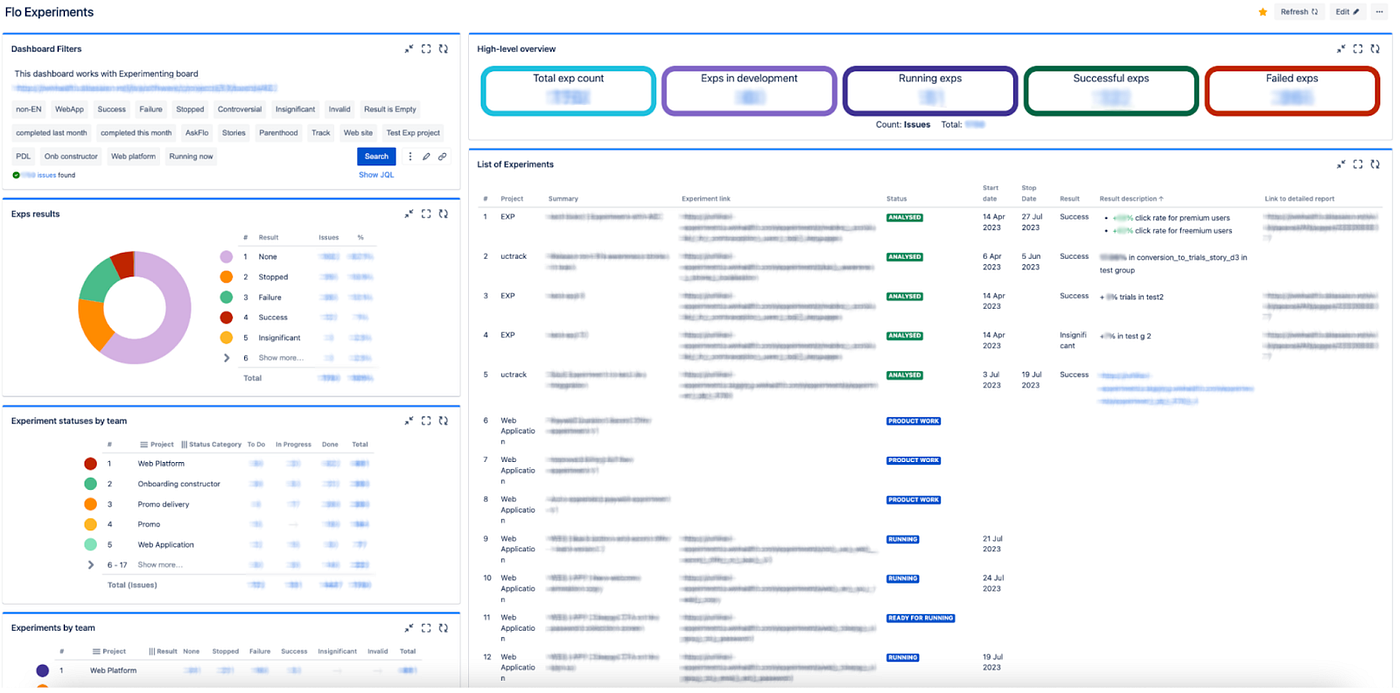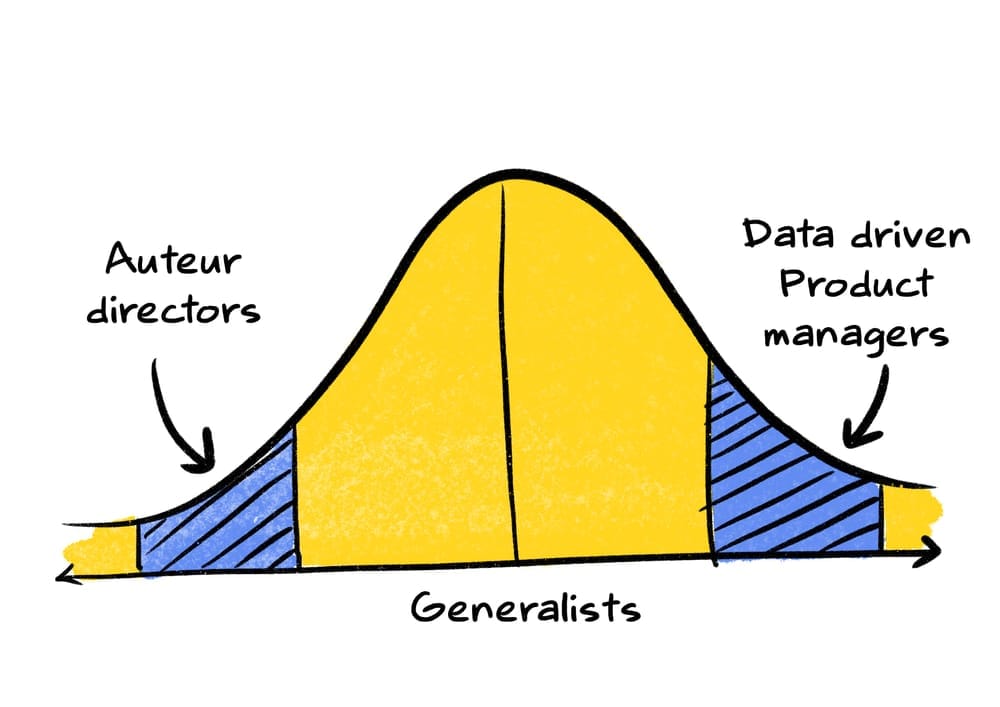Take Marc Lou, a familiar figure within the Twitter Indiehacking circle. He's garnered attention for openly sharing his journey as a product builder. This transparency has piqued interest in his projects well before their launch, as followers have grown to appreciate his distinctive approach. A notable instance of this was the excitement around his AI logo generator, which swiftly climbed to the top spot on Product Hunt. Despite its remarkable simplicity, the product captured the audience's attention, largely because the audience already understood the creator's taste.

LogoFast on Product Hunt
Unlike indie hackers, and other product builders, companies do prioritise rigorous A/B testing and data-driven decision-making. As the projects involve larger teams, and processes, they subscribe to the philosophy of 'letting the data do the talking'. Take this snippet from Flo Health's Medium blog here for example. Each and every feature is rigorously tested and experimented before going live.

However, a shift is occurring in this mindset.
People are considering taste and sensibility, despite the fact that taste is one of the hardest things to talk about.
Brie Wolfson describes this inexplicability in his essay on Taste—
When I ask people what they mean by “taste,” they’ll stumble around for a bit and eventually land on something like “you know it when you see it,” or “it’s in the eye of the beholder.” I understand. Words like taste are hard to pin down, perhaps because they describe a sensibility more than any particular quality, a particular thing. We’re inclined to leave them unencumbered by a definition, to preserve their ability to shift shapes. But I don’t think we have to. And for the past several months, I haven’t been able to resist the urge to try to articulate taste.
This comes, in part, from a place of wanting to be precise — now that the term is such a frequent and varied part of our lexicon, it runs the risk of losing its meaning. But I also believe taste is something we can and should try to cultivate. Not because taste itself is a virtue, per se, but because I’ve found a taste-filled life to be a richer one. To pursue it is to appreciate ourselves, each other, and the stuff we’re surrounded by a whole lot more. So, how to wrap my arms around this term in a way that captures its spirit without flattening it?
I can’t think of a piece of writing that does this more effectively than Susan Sontag’s “Notes on ‘Camp.’” In her words, “a sensibility is one of the hardest things to talk about... To snare a sensibility in words, especially one that is alive and powerful, one must be tentative and nimble. The form of jottings, rather than an essay (with its claim to a linear, consecutive argument), seemed more appropriate for getting down something of this particular fugitive sensibility.”
Consider the approach of Linear, a company that diverges from the data-dominated decision-making model. Linear emphasizes the importance of taste and opinion in validating ideas and assumptions, rather than relying solely on A/B testing and metrics. This approach is about trusting one's gut in a product's readiness for launch, based on qualitative feedback and iterative improvements.
This perspective is shared by Jason Fried, Co-Founder of 37 Signals (makers of Basecamp and Hey). Fried challenges the notion that everything must be A/B tested, questioning the practicality and relevance of 'statistical significance.'
He argues for a more holistic view of success, focusing on overall profitability rather than the minutiae of individual product performance. Yet, the essence of 'taste' remains somewhat enigmatic. It involves an understanding of what makes a project or product resonate, balancing quality, appeal, and budget.
But there are some great examples showcasing this. Apple's approach to sustainability reporting exemplifies this. Apple provided a new spin to the boring 10-page report format, focusing instead on a creative ad campaign outlining their efforts in a smart, eye-catchy fashion. They could have done the same thing in a more convenient format, but they chose to do it differently.
Apple provided a new spin to the boring 10-page report format, focusing instead on a creative ad campaign outlining their efforts in a smart, eye-catchy fashion.
As Brent Schlender describes in "Becoming Steve Jobs," Apple's resurgence from near-bankruptcy was driven by Jobs' ability to harness 'trusted auteur directors' to realize a singular vision. Airbnb's Brian Chesky also embodies this concept of taste. His 15-year journey in developing a nuanced understanding of both the demand and supply sides of Airbnb's service has culminated in a distinct, qualitative essence that defines the brand.
Taste is nothing but intuition translated to action. It's your System 1 in action. A firefighter immediately notices thick smoke billowing from the house. All the years of training and experience has honed his instincts, and snap-second judgements. In split seconds, the firefighter is deciding on calls to backup, begin immediate entry, as well as identify escape routes to rescue victims.
Taste is nothing but intuition translated to action.
Who should steer the course of a product's development – data-driven product managers or visionary auteurs? Should the focus be on relentlessly testing every modification and feature addition, or should we trust in the guidance of these auteur directors to fulfill their promise of impeccable taste?


